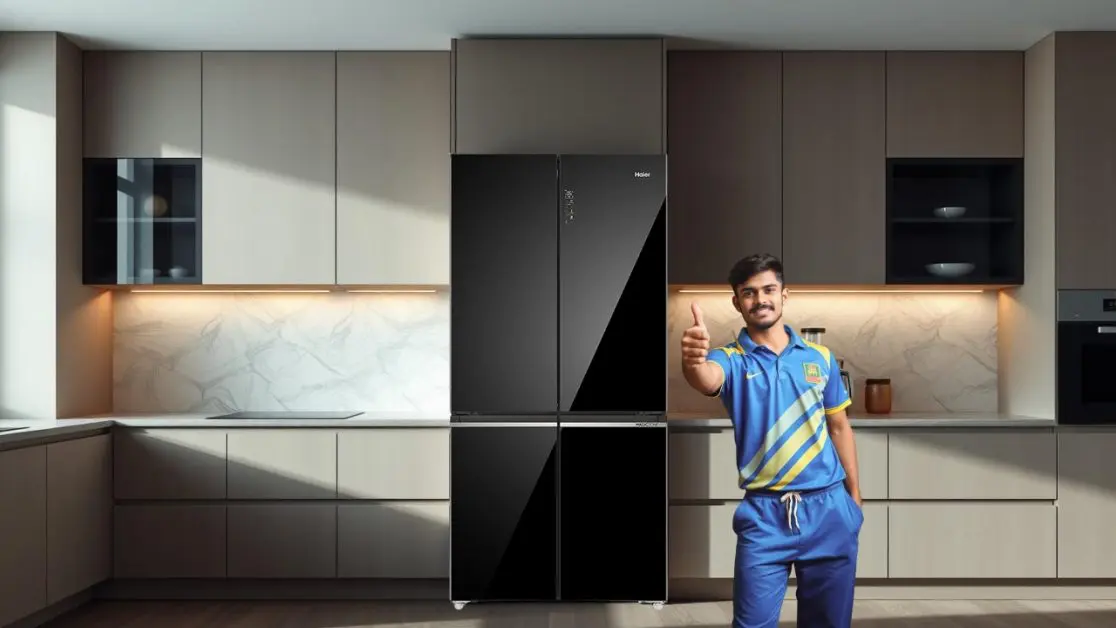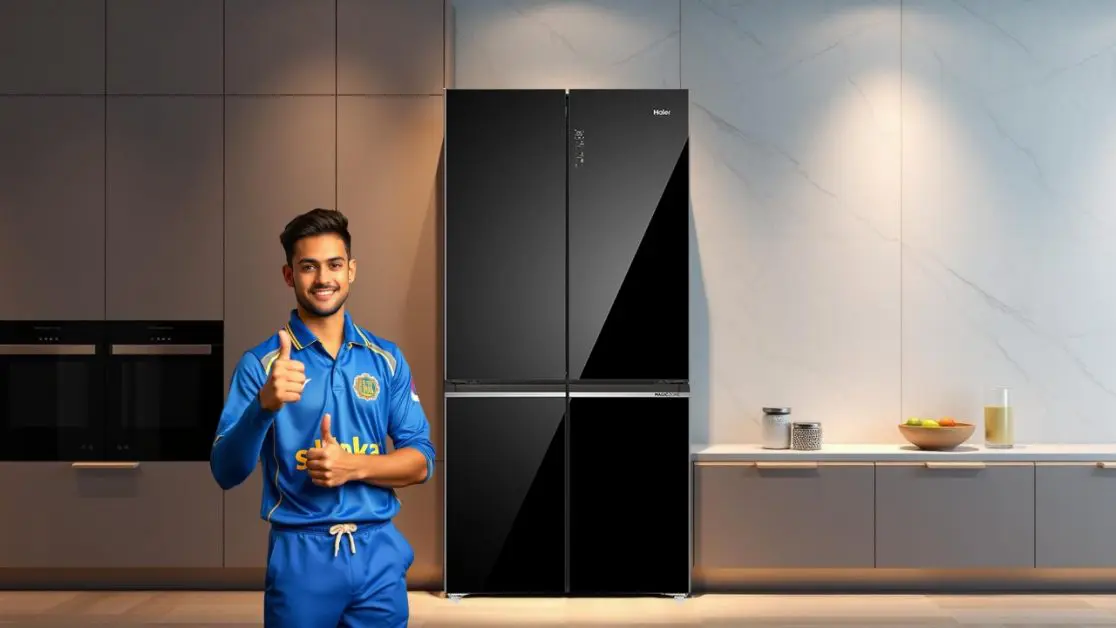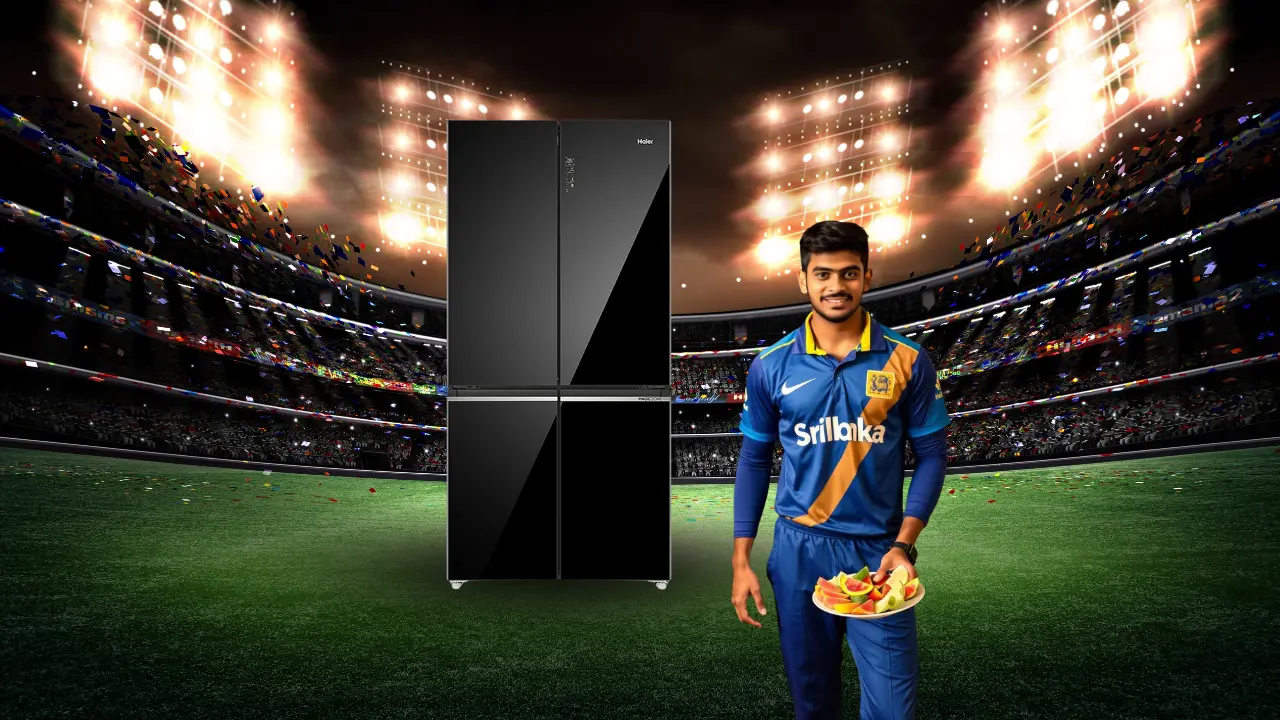Momentum doesn’t always come with a roar. Sometimes, it hums quietly. Like a fridge recalibrating itself the second the door shuts. Or a cricket team, finding control in chaos.
One Moment Changes Everything
Bangladesh were cruising.
At 100 for 1, chasing 245 under lights, it looked routine. Predictable. The kind of innings you half-watch while scrolling through your phone.
And then, it wasn’t.
In just 26 balls, they lost 7 wickets for 5 runs. What followed wasn’t drama. It was disintegrating.
Not because they were weak.
But because Sri Lanka were alert.
They sensed the tiniest opening a run-out. And in the blink of an eye, they adapted. Tightened. Closed in. Like a well-calibrated system sensing imbalance and adjusting before damage happens.
Not unlike a refrigerator that doesn’t wait for things to go wrong before stepping in.
It just knows.
Responsiveness Is a Superpower

Think about it.
A fridge that senses a drop in temperature and immediately compensates isn’t just high-tech. It’s high-trust.
It means you don’t have to worry about your ice cream melting because the door was left ajar during a family get-together. Or your veggies losing crispness just because someone lingered too long deciding what to eat.
It reacts the moment it detects a shift.
No drama. No alarms. Just silent course correction.
Like Hasaranga turning the game with four wickets for ten runs. Or Kamindu Mendis bowling with both hands, making every delivery feel unpredictable.
Responsiveness wins when preparation meets real-time pressure.
Systems That Think With You, Not Against You
Most appliances, like most teams, fail not because they’re bad, but because they don’t adapt.
A good fridge cools.
A great fridge thinks.
- It adjusts when usage patterns change.
- It learns when your family opens it most.
- It prioritises freshness even when you forget.
Just like Sri Lanka’s middle overs.
They didn’t throw everything they had at Bangladesh. They picked their moment, watched carefully, and responded exactly when it mattered.
That’s not aggression.
That’s intelligent design.
Adaptability Looks Boring – Until It Wins

We don’t talk enough about systems that don’t shout for attention.
Because when something works seamlessly, we tend to ignore it.
We only notice when it fails.
But systems that quietly protect like Smart Sense AI in the Haier Lumiere Series aren’t just convenient. They’re confidence-enabling.
- Your food stays fresher because the fridge recognises usage patterns and adjusts cooling in real time.
- Your electricity bill stays lower because it’s not overworking without reason.
- Your evenings stay calm because no one’s stressing about a spoiled salad.
It doesn’t take a collapse to realise the value of awareness.
But sometimes, it takes one to remind us.
Seizing the Moment Is About Preparation not Panic
Let’s go back to that collapse.
Bangladesh lost control not because they were unskilled.
They lost because they didn’t react fast enough when pressure crept in.
Systems fail like that too.
- You forget to close the fridge door.
- Power fluctuates.
- Summer hits peak humidity.
What happens then?
If you have a Lumiere 4-door convertible, the answer is: nothing dramatic.
It senses. It adjusts. It restores balance.
Like Sri Lanka did.
No histrionics. Just action.
What It Means for Your Kitchen and Your Life

We love drama and sports. But in life? We crave consistency.
We don’t need appliances that promise everything. We need ones that respond when it matters most.
The Haier 630L Convertible Refrigerator isn’t just big or beautiful (though it is). It’s thoughtful.
- It offers 85% fridge space when needed.
- It shifts modes with a touch.
- It connects with your phone.
- It manages groceries better than most of us do ourselves.
And most importantly?
It doesn’t wait to be told.
What Sri Lanka Taught Us And Why It Matters
Preparation without awareness is just routine.
Awareness without responsiveness is just noise.
But when a system watches closely, thinks clearly, and acts instantly?
It wins.
That’s how games are turned.
And that’s how fridges the ones worth trusting actually work.

